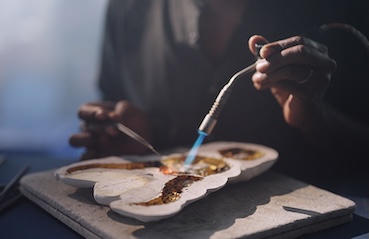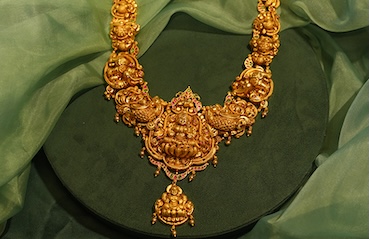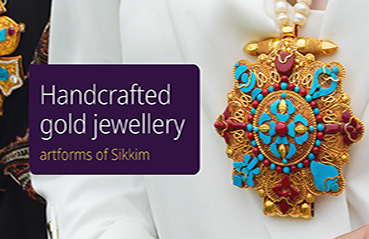Published: 19 Jun 2018
Historical and modern uses of gold in cosmetics

‘King of Metals’ or ‘Elixir of Life’ are expressions identified with none other than gold. This is because the use of this special metal is not restricted to jewellery, investments or electronics. Gold has been actively used in cosmetics for centuries now.
The use of gold in skin care dates to when Egyptian queens Cleopatra and Nefertiti were known to sleep wearing a gold mask. Let’s look at why these icons of beauty trusted the power of gold for their skincare treatments.
For the natural glow
Face packs with specs of gold were often used by queens and princesses to improve their skin tone and keep it youthful and glowing. The gold particles were said to make the skin brighter and keep it hydrated.
Slowing the process of ageing
Gold masks aided the process of reducing the collagen level in the skin, thereby preventing premature ageing. Its chemical properties were known to restore the elasticity of tissues, ensuring wrinkle-free skin.
Healing the skin naturally
Egyptians believed that gold’s medicinal properties could help skin heal. Gold is known to possess anti-inflammatory and anti-bacterial properties that helped in the renewal of cells. This was helpful in treating inflammatory skin disorders.
With cosmetic inventions advancing faster than ever before, it’s no surprise that gold has found its way into modern skin care as well. There are two ways that gold is used in cosmetics these days – as an ingredient in masks or creams; or as a gold foil or leaf for direct application on the skin.
Gold nanoparticles are actively being used by some of the largest skincare brands in the world. Let’s look at some reasons that justify gold’s role in modern skin care and dermatology:
Reduction of skin abnormalities
Gold is known to have great anti-oxidant properties that help in increasing blood circulation in the skin and thereby reduce acne and skin disorders.
Cell restoration
Colloidal gold (suspension of gold nanoparticles in water) helps restore broken connections within the cells of the skin and help with their regular regeneration. Therefore, playing a significant role in creating new cells to replace the old decayed ones.
Prevention from sun damage
The pigment responsible for tanning of the skin, when exposed to sunlight, is melanin. Gold nanoparticles can reduce the production of melanin in the body and hence prevent sun damage to your skin.
From exquisite jewellery and finely spun fabric to electrical wiring and tooth crowns, gold has a multitude of roles to play in modern society, and its role in the cosmetics industry is just another feather in its cap.











